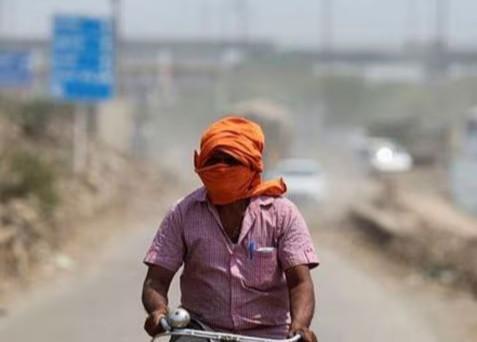
Extreme Heat Endangering Health & Productivity of Workers: Report
As the global temperature continues to rise, a recent report by the World Health Organisation (WHO) and World Meteorological Organisation (WMO) has highlighted the alarming impact of extreme heat on the health and productivity of workers worldwide. The report, published on [date], reveals that worker productivity drops by 2-3% for every degree above 20°C, making it a major concern for industries and governments alike.
The report emphasizes that the effects of extreme heat are not limited to just a few individuals, but rather it poses a significant threat to the overall economy and well-being of communities. According to the report, manual workers in agriculture, construction, and other sectors are particularly at risk, as they are more likely to be exposed to extreme heat and humidity.
Moreover, the report highlights that vulnerable populations such as children and the elderly in developing countries are also more susceptible to the negative impacts of extreme heat. These groups often lack access to proper healthcare, sanitation, and air conditioning, making them more vulnerable to heat-related illnesses.
The health risks associated with extreme heat are numerous and can be life-threatening. Some of the most common heat-related illnesses include:
- Heatstroke: A life-threatening condition that occurs when the body’s temperature regulation system is overwhelmed, causing the body’s temperature to rise rapidly.
- Dehydration: A condition that occurs when the body loses more fluids than it takes in, causing symptoms such as dizziness, headaches, and fatigue.
- Kidney dysfunction: Prolonged exposure to extreme heat can cause kidney damage and even failure.
The economic impact of extreme heat on workers is also significant. As worker productivity drops, it can lead to reduced output, increased absenteeism, and decreased morale. This, in turn, can have a ripple effect on the overall economy, leading to increased costs and decreased competitiveness.
The report highlights the importance of implementing measures to protect workers from extreme heat. Some of the measures recommended include:
- Proper hydration: Encouraging workers to drink plenty of water and other fluids to stay hydrated.
- Heat stress training: Providing workers with training on recognizing the signs and symptoms of heat stress and heat-related illnesses.
- Cooling measures: Implementing cooling measures such as air conditioning, fans, and shading to reduce the temperature in workspaces.
- Flexible working hours: Allowing workers to adjust their working hours to avoid the hottest part of the day.
Governments and industries are taking steps to mitigate the effects of extreme heat on workers. For example, some countries are implementing heat stress policies, while others are investing in heat-resistant technologies and infrastructure.
In conclusion, the report by WHO and WMO highlights the urgent need for action to protect workers from extreme heat. As the global temperature continues to rise, it is essential that we take steps to ensure the health, safety, and productivity of workers worldwide.
Source:
https://repository.inshorts.com/articles/en/PTI/45d9bd2d-ff57-417c-9e5f-831344bb34b0






